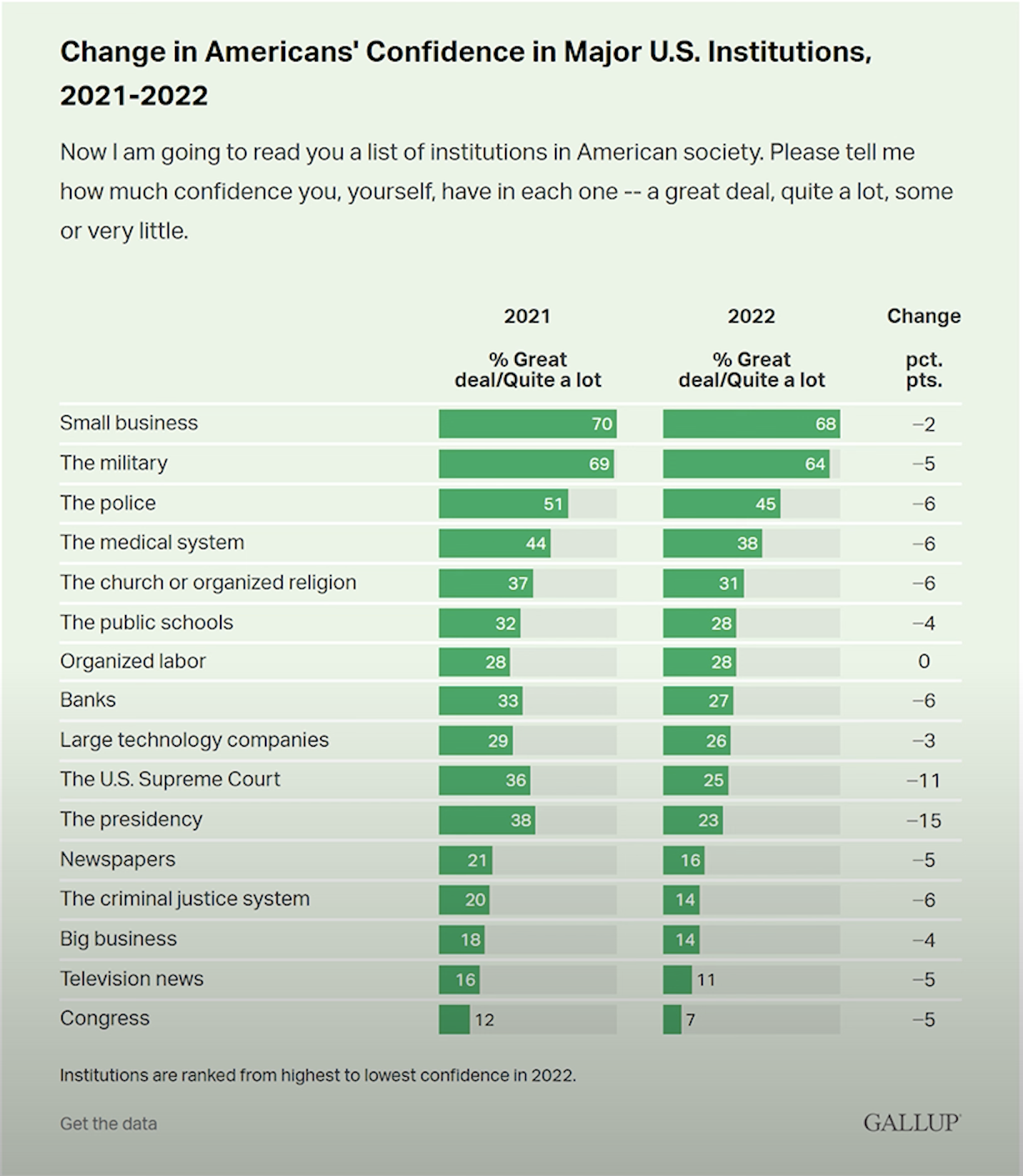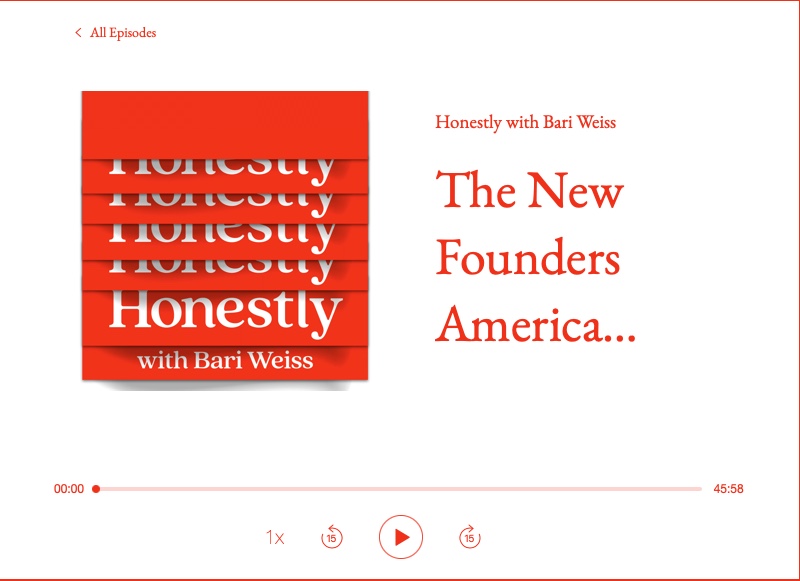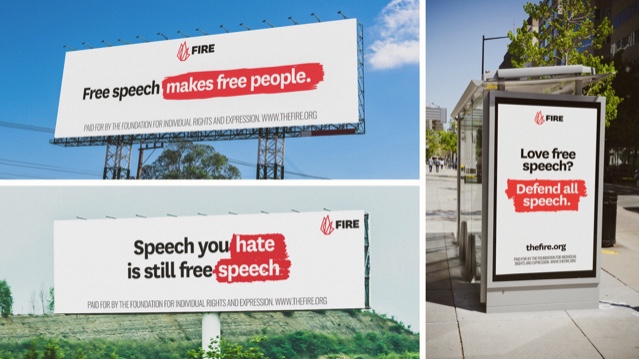America’s Crumbling Institutions and Their Discontents
America's Institutions are crumbling. We can see it all around us, according to this recent Gallop poll:
Jonathan Haidt comments on one of the main causes of institutional decay: The failure of institutions to nurture and encourage free and vigorous speech resulting in the lack of viewpoint diversity:
America’s institutions were once strong, he says.
“By the mid to late 20th century, America had the best epistemic institutions in the world, epistemic meaning institutions that generate knowledge, like universities, research institutes, intelligence agencies.
“Social media comes in and makes us afraid of dissent. Because if you tell a joke, if you raise a question, if you even so much as tweet, a link to a study, an academic study, that questions an orthodoxy about race, or gender, you can be fired for that.
“When critics go silent, the institution gets stupid.”



